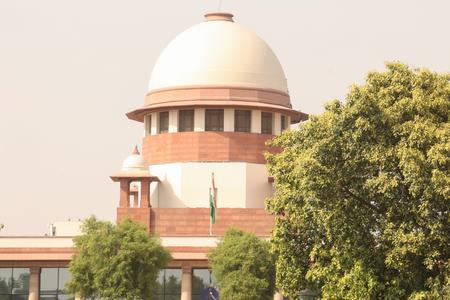
Two-Judge SC Bench Refers PIL On Mandatory TET In Minority Institutions To CJI
Observing that the petition raised substantial questions of law, a Bench of Justices Dipankar Datta and AG Masih referred the matter to the CJI, who is the master of the roster, noting that similar petitions have already been referred to a larger Bench.
The plea argued that the exclusion of minority-managed institutions from the purview of the RTE Act violates the fundamental rights to equality and education enshrined in Articles 14, 15, 16, 21, and 21A of the Constitution.
The petition challenged Sections 1(4) and 1(5) of the Right to Education Act, 2009 (RTE Act), calling them "arbitrary, discriminatory, and unconstitutional".
"The Right to Education guaranteed under Article 21A implies equal quality education. Therefore, exclusion of certain schools from TET is against the golden goals of the Constitution," the PIL contended.
The petitioner, Nitin Upadhyay, who is pursuing law at Delhi University, argued that Article 30, which protects the rights of minorities to establish and administer educational institutions, must be interpreted "purposively, not literally".
"Article 30 aims to establish equality between all citizens and place the minorities on an equal footing," the petition said, referring to the Supreme Court's recent judgment, where the apex court had questioned whether exempting minority schools from the RTE Act perpetuates systemic exclusion.
Citing the Anjuman Ishaat-E-Taleem Trust vs. State of Maharashtra case, the PIL said that a 2021 study by the National Commission for Protection of Child Rights (NCPCR) found that only 8.76 per cent of students in minority schools came from socially and economically disadvantaged groups.
Praying for a "common education system", the PIL said that applying the TET uniformly would enhance educational quality and promote national interest.
"A common minimum education programme for children up to 14 years would achieve the code of common culture, removal of disparity, and the depletion of discriminatory values," the petition contended.
The PIL sought a declaration that Sections 1(4) and 1(5) are void and inoperative for violating equality and education rights, and the schools providing both religious and secular education are covered under the provisions of the RTE Act.

Legal Disclaimer:
MENAFN provides the
information “as is” without warranty of any kind. We do not accept
any responsibility or liability for the accuracy, content, images,
videos, licenses, completeness, legality, or reliability of the information
contained in this article. If you have any complaints or copyright
issues related to this article, kindly contact the provider above.
Most popular stories
Market Research

- Casper Network Advances Regulated Tokenization With ERC-3643 Standard
- Forex Expo Dubai Wins Guinness World Recordstm With 20,021 Visitors
- Superiorstar Prosperity Group Russell Hawthorne Highlights New Machine Learning Risk Framework
- Freedom Holding Corp. (FRHC) Shares Included In The Motley Fool's TMF Moneyball Portfolio
- Versus Trade Launches Master IB Program: Multi-Tier Commission Structure
- Ozzy Tyres Grows Their Monsta Terrain Gripper Tyres Performing In Australian Summers




















Comments
No comment